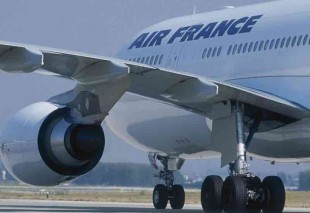

AccorHotels could potentially invest in Air France-KLM

AccorHotels has been garnering quite the attention with all its acquisitions and a recent Skift report reveals that the hotel company might be eyeing at obtaining a 14.3% stake in Air France-KLM.
However, AccorHotels CEO Sebastien Bazin, when asked about a possible investment at the NYU International Hospitality Industry Investment conference in New York, he said: "I still don’t know if it makes sense… we’re still figuring out the terms, conditions, pricing."
Just last week, AccorHotels revealed that it had completed the sale of 57.8% of the capital of AccorInvest to sovereign wealth funds Public Investment Fund (PIF) and GIC, institutional investors Colony NorthStar, Crédit Agricole Assurances and Amundi, and other private investors.
For AccorHotels, the transaction results in a gross cash contribution of €4.6 billion (US$5.4 billion). Besides, the Skift report elaborated that Accor could have nearly $1.05 billion still left to spend after it resolves its recent acquisitions of Mantra, Mantis Group, ResDiary, Mövenpick, $1.6 billion in share buybacks, and $1.17 billion of debt repayment.
The company’s shareholders, however, have reportedly expressed “displeasure” at the possible investment into the airline keeping in mind that Accor’s shares fell by 7% on June 4, 2018.
Bazin also noted that AccorHotels could instead opt for partnership with the airline instead commenting “you don’t have to be an investor” to see the benefits of synergies between airlines and hotels, the report further stated.
Bernstein analyst Richard Clarke agreed with Bazin’s sentiment.
“While the strategic rationale for Accor is there, we wonder why this cannot be achieved by a commercial partnership without any equity stake,” Clark said and went on to point out the possible risks.
“While Air France-KLM is trading on four times the price-earnings ratio, the deal would bring even more complexity to Accor, who is already integrating many recent hotel acquisitions; higher risk, Air France-KLM currently has no CEO, no evident strategy to solve its labour crisis, and is highly exposed to rising fuel prices; and more cyclicality, all of which are not positives for valuation,” Clark explained.